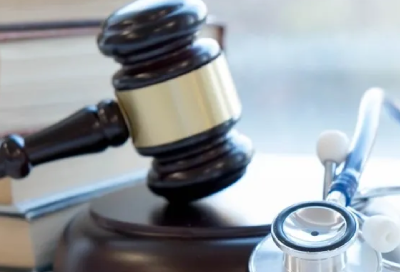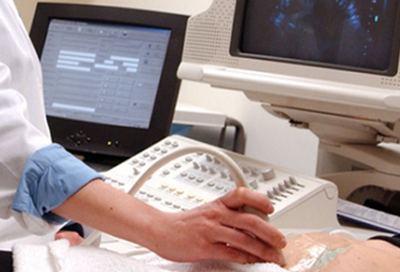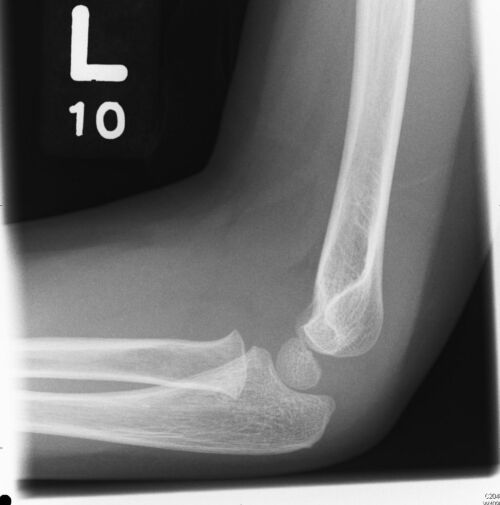Description
Introduction
This course has been designed for clinicians who treat patients within the first 24 hours of attendance at hospital, and where situations arise requiring the clinician to consider the legal implication of their decisions. This might include issues of consent, mental capacity or illness, and confidentiality. The course also deals with the legal processes of litigation and HM Coroner inquests.
Come join us for a virtual one-day interactive symposium covering the relevant law and legal principles and hear from our experts how they approach matters faced by staff on a daily basis.
Who is the Medico-legal Symposium for?
- Trainees and Consultants in Emergency Medicine, Acute Medicine and indeed all specialties who deal with patients in the first 24 hours of presentation to hospital.
This course is designed for clinicians working in acute specialties who:
- manage patients and who oversee a service with responsibility for dealing with system partners such as HM Coroner, the Police and litigation departments
- who deal with patients presenting with conditions requiring assessment of capacity, application of mental health assessment, safeguarding or deprivation of liberty.
The symposium will be delivered by:
- A Consultant in Emergency Medicine, who is also Deputy Medical Director of a large acute NHS Trust and who has significant experience in the law as applied to medicine.
- A Qualified Solicitor who is Head of Legal Services for a large acute NHS Trust, having extensive experience in Coronial Inquests, Civil Litigation, Mental Heath Law and Court of Protection Applications.
Course content
Content will include the following and will be taught in a case-based interactive format with slide presentations and live polls.
- Introduction to the Law and how it interacts with medical practice
- Patient confidentiality and disclosure of confidential information (to the Police)
- Coronial Inquests and how to minimise ‘criticism’ and adverse findings
- Clinical Negligence, maintaining the duty of care and what to ensure is documented
- Mental capacity and mental health, refusal of treatment and when it is permissible to treat without consent
Format
Programme
08.45-09:00 Introduction and Plan for the day
09.00-09:30 What is the Law?
- The English Legal System – Statute & Common Law
- Standards of Proof
- Criminal vs Civil vs Coronial
- Statutory agencies who hold doctors to account
- Human Rights Act 1998
09:35-10:45 Confidentiality
- What is Confidentiality?
- How are doctors held to account
- The penalties for breaching confidence
- When and how to lawfully breach confidence
10.45-11.05 Break
11.05-12:05 HM Coroner
- The role of HM Coroner
- When to make a referral and when not
- Coronial Investigation and submission of evidence
- The Inquest
- Criticisms, adverse findings and concerns – how to avoid
- Regulation 28 reports to Prevent Future Deaths
12:05-12:35 Lunch Break
12:35-12:50 Recap
- Opportunity to go over issues arising from the morning session
12:50-13:45 Clinical Negligence
- The four pillars of Negligence
- Liability and Indemnity
- Common themes in Negligence claims
- How to avoid being sued!
- How to deal with claims when they arise
- How to defend (or admit) liability
13:45-14:40 Mental Capacity (MCA 2005)
- The law of capacity
- Pitfalls and traps
- The patient who does not consent
- Treating without consent
- Advance directives
14:40-15:00 Break
15:00-15:50 Mental Health (MHA 1983)
- The law of Mental Health
- Invoking the MHA in ED
- How & why a detained patient is different
- Treatment in the absence of consent
- Depriving a person of their liberty
- How the HRA 1998 applies to the MHA 1983
15:50-16:40 The law and the Child
- What is a child?
- Laws to consider when dealing with children
- Safeguarding and child welfare
- Whose best interests – the parent or the child?
- Adolescent autonomy, consent and competence
16:40-17:00 Recap and Close
- Opportunity to go over issues arising from the afternoon session
Faculty
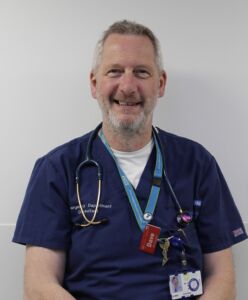
Mr. David Kirby MRCS FRCEM LLM
Course Director
David completed higher specialist training in the East of England and was appointed as a consultant at the Luton & Dunstable Hospital in 2008, with dual accreditation in both Adult and Paediatric Emergency Medicine. He was appointed Clinical Director in 2012, and subsequently became Deputy Medical Director in 2015. During this time, the L&D transformed into the lead Trust in the country for delivery of the four-hour UEC standard.
David has been involved in medico-legal work since 2016, after being asked to attend a particularly difficult inquest on behalf of the Trust. This experience led him to confront the complexities of communicating the nuances and challenges of clinical decision-making to legal professionals, who often have hours to scrutinize decisions and actions that clinicians had only seconds to consider. He found that such sympathetic and contextual understanding was often lacking in court.
As part of his role as Deputy Medical Director, David began attending almost every Coronial Inquest at which his Trust was an interested party. In these settings, he represented the Trust and provided evidence to HM Coroner in a manner that not only assisted the investigation but also helped the family of the deceased understand and recognize what had happened to their loved one. David continues to operate in this capacity, regularly attending court.
In 2017/18, he was invited to speak at the HM Coroner’s Officers Continuation Training, a national program providing CPD to Coroner’s Officers. His presentation was well-received, and the following year he was invited by the Judicial College to speak at a similar course for Coroners themselves. During this event, David had the honor of lecturing almost every Coroner in England in sessions chaired by HHJ Mark Lucraft KC, then Chief Coroner of England and Wales.
Around the same time, David began writing expert reports for various Coroners, offering clinical opinions on cases being considered at inquest. This quickly developed into a significant caseload, with reports being produced almost monthly and live evidence provided under cross-examination at inquests. He has produced expert reports for many serious cases, including those where Article 2 is engaged, such as deaths in prison and police custody.
David also writes expert reports in clinical negligence claims for both claimants and defendant Trusts, often instructed by panel solicitors. He provides reports capable of defending reasonable practice while highlighting deficiencies that should be admitted. He now handles approximately 15 to 20 reports annually, giving him extensive insight into the types of claims and patterns of allegations forming the themes of litigation in Emergency Medicine.
Alongside his full-time clinical and Director roles in the NHS, and his work as an independent expert, David studied at the University of Manchester. In 2022, he was awarded a Master of Laws (LLM), with his dissertation on “The Interface Between Law and Medicine” receiving a Distinction. He is regularly invited to teach on medico-legal matters to a wide range of audiences, including clinicians, lawyers, and police officers.
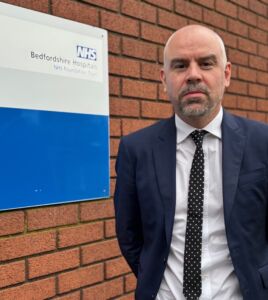
Mr Tim Smith , LLB (Hons), LPC
Head of Legal Services Bedford Hospitals NHS Foundation Trust
Tim is a qualified solicitor and has over 10 years experience within legal services in the NHS, delivering all aspects of legal support to clinicians and executives.
After spending a number of years at a large tertiary centre in the Midlands, Tim is currently the Head of Legal Services at Bedfordshire Hospitals NHS Foundation Trust. Here he oversees all Coronial investigations, litigation and clinical negligence claims, Court of Protection matters, safeguarding and mental heath detention advice.
Tim also led on one of the largest ever group action of cases brought against an NHS trust, and has legally represented Trusts on numerous complex Article 2 inquests involving multiple witnesses, liaising with HM Coroner, Counsel and other IP’s.
His philosophy is to work closely with clinicians involved in the inquest process, to provide advice and support in preparation for attendance at inquest and also support staff in what is undoubtedly a very difficult time. He regularly provides in-house talks on inquest process and clinical negligence claims to identify areas of learning in order to support patient safety developments.

